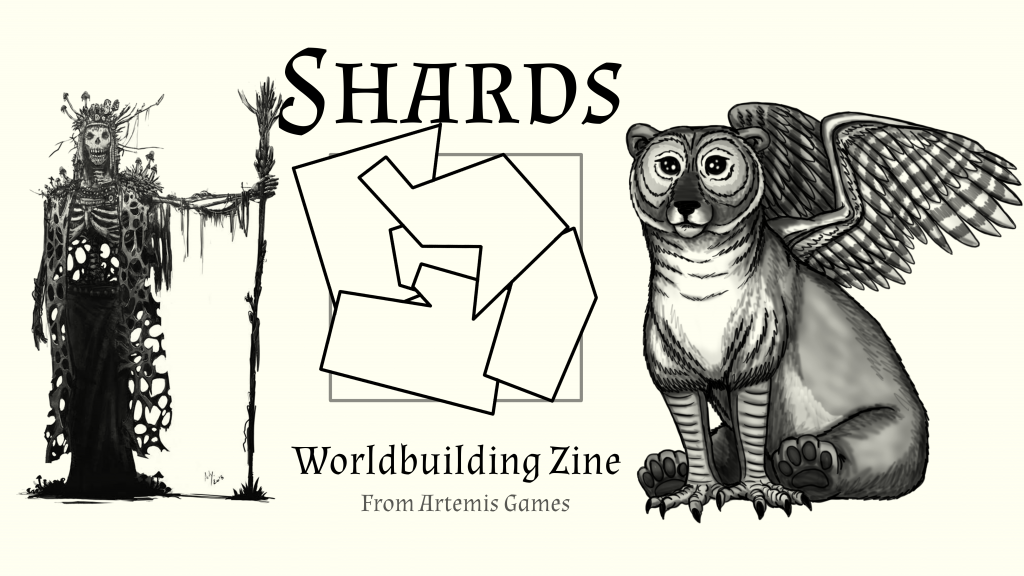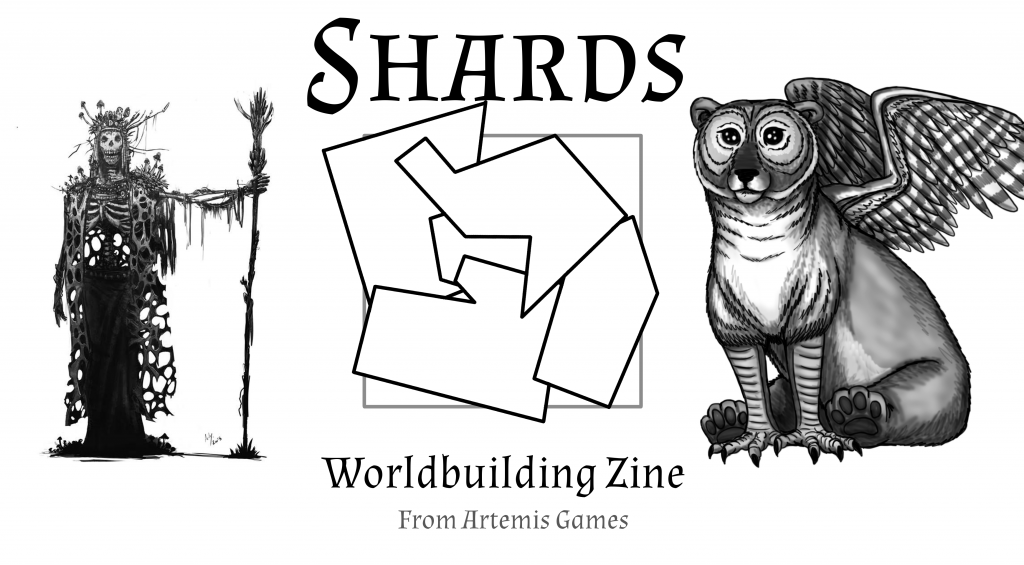We are – we’ve just increased the size of the Zine by 12% without adding a single extra page.
With our experience of printing on playing cards and small leaflets in our previous projects we’ve become well aware of the cost of wide borders, and the dangers of small ones – just how important it is to get them as small as possible and no smaller.
Shards is our first major case of printed long-form text, and we’ve therefore been playing with the borders for a while now, working out what size they can be – but we missed one major factor that more experienced book-printers would have spotted immediately: The three outside borders and the inside border should not be the same size. We’d been working with them equal, and that was costing us a lot of space as it means the borders had to be a whole 6mm (quarter of an inch) wider. That’s a 4% increase of the usable height, and 3% on the width.
But that’s only a 7% increase in area – so why am I saying 12%? That’s where the typesetting aspect comes in: words rolling over the end of the line, and paragraphs rolling over the end of a page, take up a surprising amount of space.
But Wait, There’s More: We’ve also tested decreasing the font size from its past 12pt to a smaller 11.5pt text, on the upper end of what paperback books use – it’s still thoroughly readable for even low-quality eyes, but it saves another 8%, letting us fit in even more content.
We knew from the start that we wanted the text bigger and clearer than on our past Concept Cards projects – their space requirements were far tighter – but we overshot what was necessary. Partly this is due to our first test print being done on a printer with a slight misalignment – the text blurred in a way that made it slightly harder to read at small sizes – which has now been corrected.
And Another Thing: We’ve settled on cream paper stock for the zine. We had been considering “Natural” paper, the kind that many older novels used – as it is nicely yellow, and a little more environmentally friendly. However we decided to do a test run on that paper type, and were reminded that the nice yellow tint of a good book takes about a year to really kick in – and we’re not going to be using tea to artificially age the Zine…
Let me leave you with a final thought: There’s one week left on this Kickstarter – so now’s the time to back before you miss out!
Be Well
-Ste


